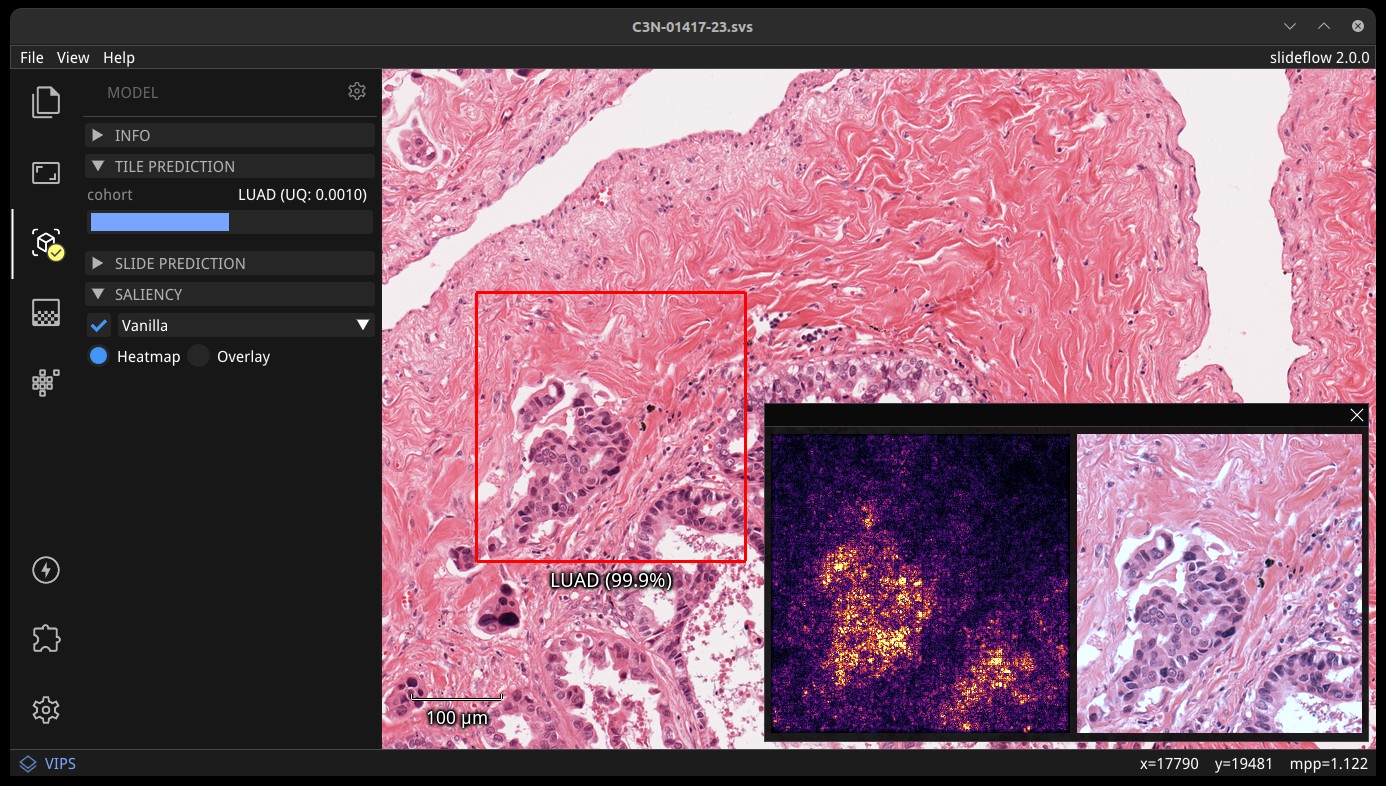Slideflow: Deep Learning for Digital Histopathology with Real-Time Whole-Slide Visualization
Deep learning methods have emerged as powerful tools for analyzing histopathological images, but current methods are often specialized for specific domains and software environments, and few open-source options exist for deploying models in an interactive interface. Experimenting with different deep learning approaches typically requires switching software libraries and reprocessing data, reducing the feasibility and practicality of experimenting with new architectures. We developed a flexible deep learning library for histopathology called Slideflow, a package which supports a broad array of deep learning methods for digital pathology and includes a fast whole-slide interface for deploying trained models. Slideflow includes unique tools for whole-slide image data processing, efficient stain normalization and augmentation, weakly-supervised whole-slide classification, uncertainty quantification, feature generation, feature space analysis, and explainability. Whole-slide image processing is highly optimized, enabling whole-slide tile extraction at 40X magnification in 2.5 seconds per slide. The framework-agnostic data processing pipeline enables rapid experimentation with new methods built with either Tensorflow or PyTorch, and the graphical user interface supports real-time visualization of slides, predictions, heatmaps, and feature space characteristics on a variety of hardware devices, including ARM-based devices such as the Raspberry Pi.
PDF Abstract




